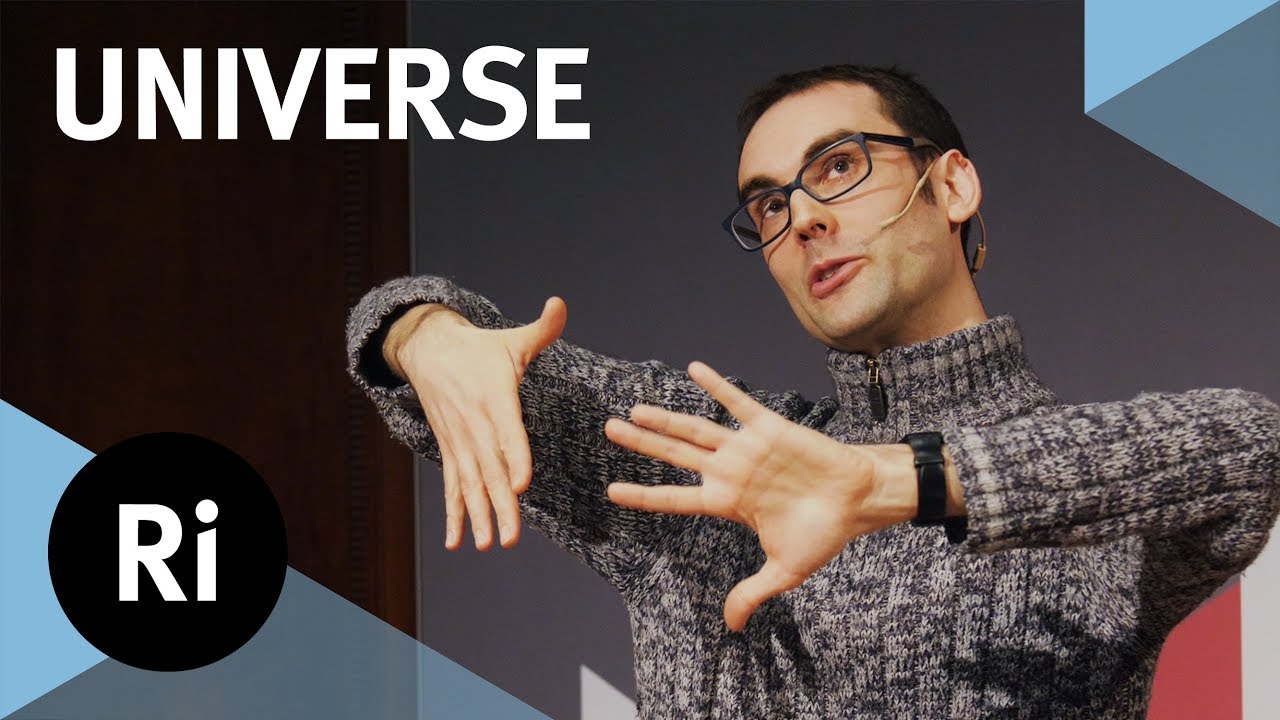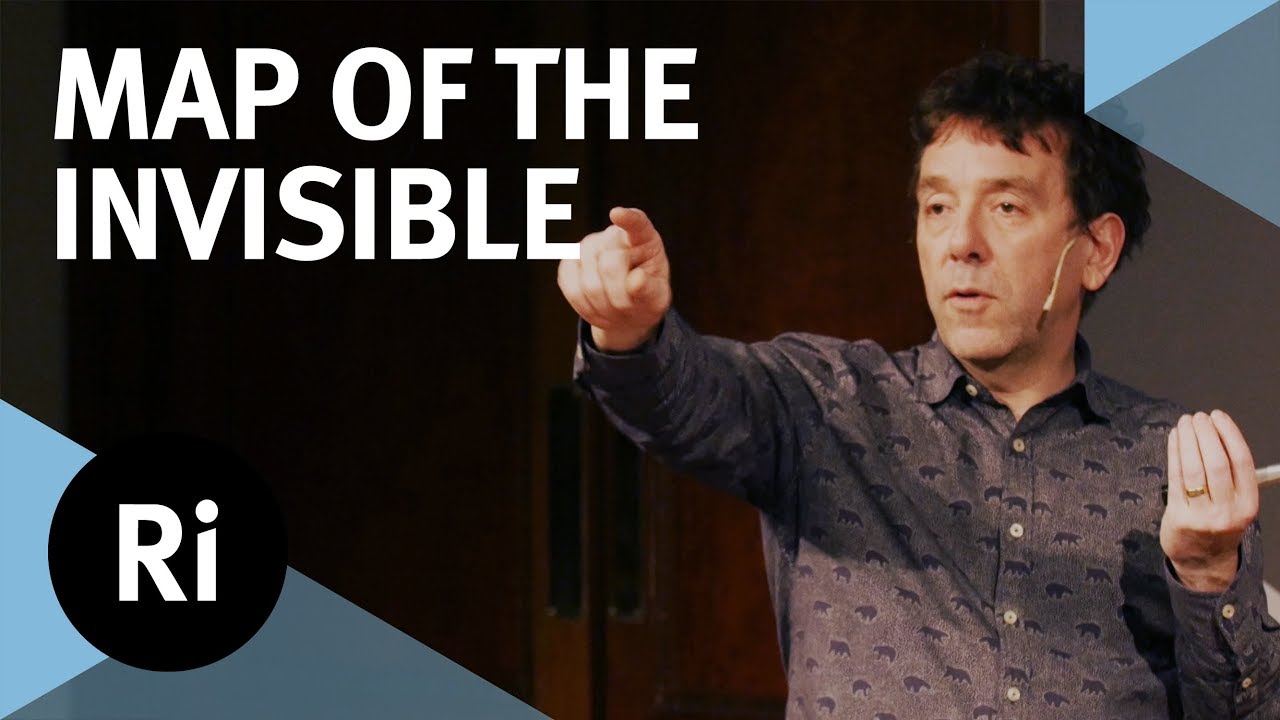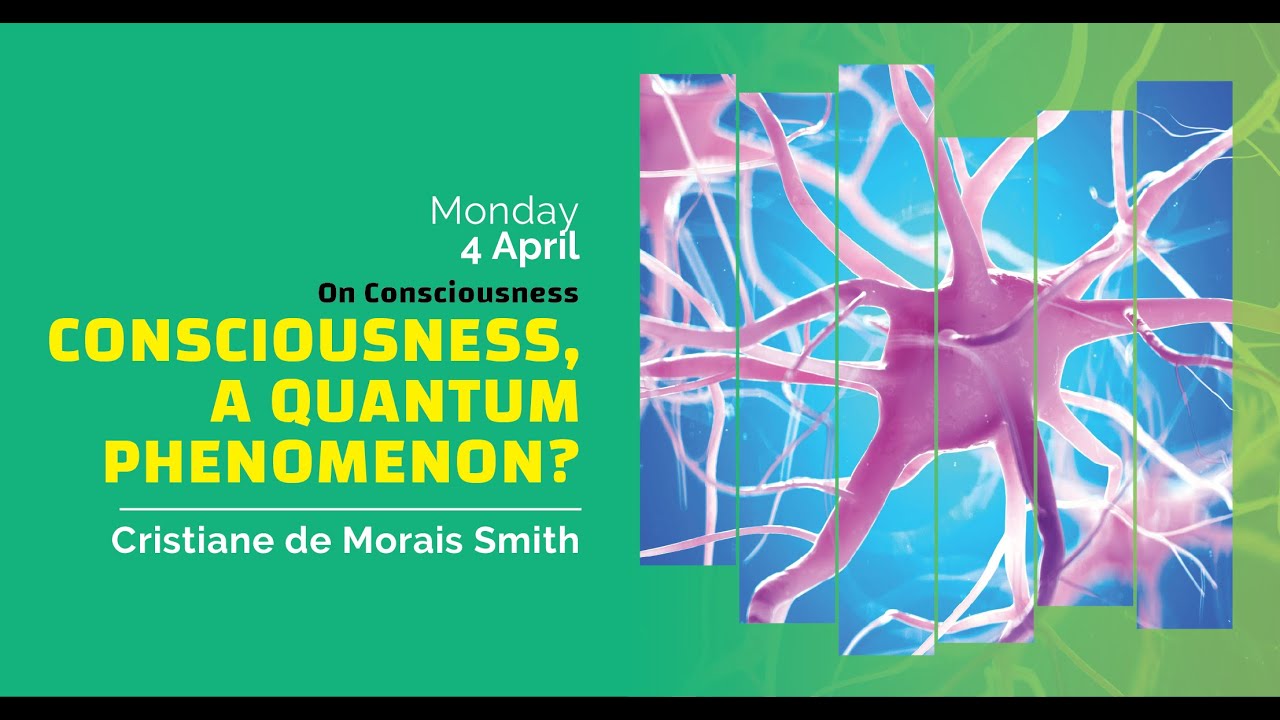The Royal Institution
What’s the universe made of? What are galaxy filaments? How did it all come to be?
Support us on Patreon: https://www.patreon.com/TheRoyalInstitution
Subscribe for regular science videos: http://bit.ly/RiSubscRibe
This talk was hosted in conjunction with U3A.
Dr Andrew Pontzen is a cosmologist at University College London. His research, for which he was awarded the Royal Astronomical Society’s 2016 Fowler Award, focuses on the way that galaxies and other structures have formed in our Universe. He is also an experienced communicator of science on radio, TV and at events across the UK.
Watch the Q&A: https://youtu.be/5X7vqLYoE_s
This talk and Q&A were filmed at the Ri on 11 March 2019.
—
A very special thank you to our Patreon supporters who help make these videos happen, especially:
Dave Ostler, David Lindo, David Schick, Erik Shepherd, Greg Nagel, Ivan Korolev, Joe Godenzi, Julia Stone, Kellas Lowery, Lasse T. Stendan, Lester Su, Osian Gwyn Williams, Paul Brown, Radu Tizu, Rebecca Pan, Robert Hillier, Roger Baker, and Will Knott.
—
The Ri is on Patreon: https://www.patreon.com/TheRoyalInstitution
and Twitter: http://twitter.com/ri_science
and Facebook: http://www.facebook.com/royalinstitution
and Tumblr: http://ri-science.tumblr.com/
Our editorial policy: http://www.rigb.org/home/editorial-policy
Subscribe for the latest science videos: http://bit.ly/RiNewsletter
Product links on this page may be affiliate links which means it won’t cost you any extra but we may earn a small commission if you decide to purchase through the link.
Source




Nothing revelatory here regarding what made the universe. Just another disciple of Monsignor Lemaitre and his primeval atom. Comparing the supposed heat of the primeval atom with the Boyle–Mariotte law in relation to reducing the volume of a gas by compression is silly. The computer simulated universe has to have an edge but the real one doesn't? What does it have then? If you believe in the finite spherical universe he describes, then there must be a last particle of matter and that is at the edge of the universe and nowhere? This is nonsensical. Pontzen should learn to pronounce kilometre correctly. It doesn't rhyme with speedometer. Try pronouncing millimetre or centimetre to rhyme with speedometer and see how stupid it sounds.
at 2:58, the image of the Hubble Space Telescope, how do you think they took that picture? was it a camera designed to take a picture of Hubble? a passing satellite? was it taken during Hubbles deployment?
Could what we call the big bang simply have been a massive black hole that exploded? Light can't escape a black hole, so that explains the lack of light prior to 14B years, especially if the black hole that theoretically created our universe was only one of many before. Perhaps our universe is trillions of years old and there is a lot of mass and energy 30B LYs away that just hasn't reached us yet. To go even further on a stretch what if black holes actually creates energy, as the gravity creates a tunnel of sorts that pulls energy into our universe. When that black hole explodes it adds more energy to the universe than it took. Maybe this could explain why the universe seems to be accelerating when it shouldn't be. I know I am throwing some wild ideas out there, but these are the things I wonder and I don't really have the background or tools to disprove.
The most intresseting how you can have the biggest possible planet without being a gasgiant taht you could walk on ,maybe not run , a shellworld with the size of Jupiter and with a athmosphere could be a nice world anyway on the outside.
IT'S WHO – GOD CREATED IT – ALL OF IT.
Mr Pontzen avoids controversy when he chooses not to explain why Hubble is in low Earth orbit and how it has been surpassed (in some wavelength of light) by Earth based telescopes that cost far less and are easier to maintain.
This lecture was brilliant and very engaging. The simulation at the end was excellent. As an aside, and an observation – I was stunned by the amount of grey hair in the audience – no young people allowed?
…dude needs to find a sweater with longer sleeves
why is He wearing a turtleneck? this was filmed in winter #youliedtome
A well-known scientist, a very decorated scientist named Herbert Spencer, died in 1903. In his scientific career he had become noted for one great discovery; it was a categorical contribution that he made. He discovered that all reality, all reality, all that exists in the universe can be contained in five categories: time, force, action, space and matter. Herbert Spencer said everything that exists, exists in one of those categories: time, force, action, space and matter. Nothing exists outside of those categories. That was a very astute discovery and didn't come until the nineteenth century. Now think about that. Spencer even listed them in that order: time, force, action, space and matter. That is a logical sequence. And then with that in your mind, listen to Genesis 1:1. "In the beginning," that's time. "God," that's force. "Created," that's action. "The heavens," that's space. "And the earth," that's matter. In the first verse of the Bible God said plainly what man didn't catalog until the nineteenth century. Everything that could be said about everything that exists is said in that first verse.
Can we know where the center of the universe is or where the big bang occurred ?
The thumbnail makes it look like he's trying to solve the puzzle of how to shake his own hands in a deal with himself.
very structured
Splendid.
uninsteresting
why is the audience made up predominantly of older folks? Usually, all ages are represented…outside of xmas/children's lectures.
I feel like this talk was based on the series “The Cosmos”, with the loud clown Neil NeGrasse Tyson.
Why is the RI hosting inaccurate and non-scientific talks?
I'm pretty sure there are a few Jupiter mass planets out there that are crawling with life.a few out of billion.it is very likely. There are a Lot of amazing things out there to be discovered.
I don’t think so Big Bang theory
You would think the closer to the sun you get the hotter space would get, question does space get hotter the closer we get to the sun
If you want the reaal story ask me.
I'd like to see this guy go toe-to-toe with Wal Thornhill or Ben Davidson..
"And God said…"
Amazing lecture, I just have one complaint: It is way too short! More please 🙂
Dark matter is older than the Universe. How, can it be?
I made it out of Leggo
thank you
Just reapeating the sane things weve known .mostly going over all the popular tools and the readings.
Halfway and he still hasn’t said anything. Clickbait.
The Search For TRUTH
Often we have heard from those who seek to know TRUTH in scientific ways by verifying theory based on rather short-sighted information.
“Where pride is, there also shall be reproach:
but where humility is, there also is wisdom.”
[Proverbs 11:2]
“And whosoever shall exalt himself shall be humbled:
and he that shall humble himself shall be exalted.”
[Matthew 23:12]
The search for TRUTH cannot be ultimately determined by limited information confirming limited theories. As a specie, we humans will never know all there is to know about TRUTH. For as one door opens, we find illumination shining under a multitude of closed doorways each one ready to be opened into the beautiful light of new discoveries and new doorways— a very exciting, never ending process!
Our Creator began our universe, and possibly an uncountable number of other unique universes, within the Infinite Eternal Conscious Bliss of its own BEING. Thus, every form of energy is known by and communicates its unique being with its Creator. All that manifests lives within the infinite awareness of its Creator. All forms of life “swim within” and are totally dependent upon the will and consciousness of the Creator. Our Creator has endowed innumerable life forms with free will to make responsible decisions for which they are held accountable. Each created set of species live within a unique universe governed by unique interwinding laws at various levels of awareness, and each specie will have the opportunity to eventually pass through “the narrow gate” into a very special “mansion” in paradise.
“In my Father’s house there are many mansions.
If not, I would have told you: because I go to prepare a place for you.”
[John 14:2]
The being who says that it is not necessary to have faith in our Creator searches with its head in the quicksand to discover a very limited spectrum of “sandy truth”— missing the limitless vistas of possible discoveries in the world above his/her created quicksand-filled hole.
And so let us bow before our Creator giving Praise, Adoration and Thanks for the unmerited gift of grace— of living awareness that IAM bestows equally upon each one of us. We have but to love our Creator and our neighbours as we are loved unconditionally—treating all with patience, gentleness and kindness!
“Be you therefore perfect, as also your heavenly Father is perfect.”
[Matthew 5:48]
That is our challenge and our destiny— the choice is yours.
I think this guy is an excellent presenter, shame about the content being more science fantasy than real science. It's definitely more metaphysics than real physics, but it will be a long time before we actually know something of real note!
I would like to ask a question which has long since puzzled me. You said rightly that we cannot image our galaxy because our solar system is part of it. Understandably, we have no spacecraft to take an image from an external perspective. Why then is it possible to take an image (cosmic microwave) of the whole universe? I understand that it has taken 13.7 billion light years for the microwave to travel to us. Surely, 13.7 billion years ago, we we inside the primordial universe and not external to it. Is it due to inflation? Was matter (including the material in which our solar system was formed) thrown so far away that it has taken this long for the microwave to travel to us? An explanation would be greatly appreciated.
özür dilerim pek dinleyemedim 🙁
Hey I get it, believe me, I do…, as long as the universe is not infinite, cosmologists are in their safe place.
I just surprised how air affective on flag while a person standing on moon?scene between (2:00–2:55)min
I hate it when speaker says, "the universe is a really big place." Like, no kidding. A little patronising, but interesting somewhat.
this Andrew Pontzen , imo , is an AWESOME presenter , i wish for more lectures from him !
3:53 the nearest planet is Venus, not Mars. Excellent lecture nonetheless